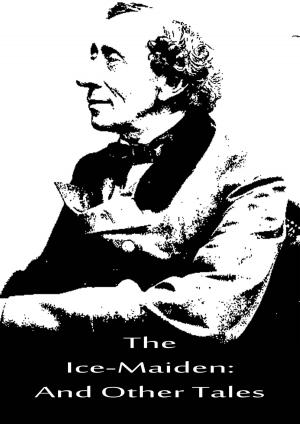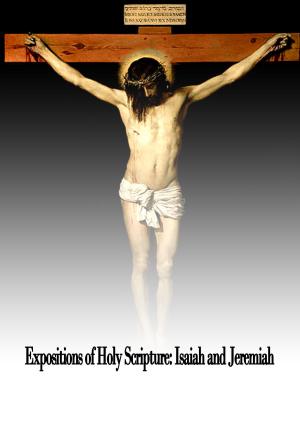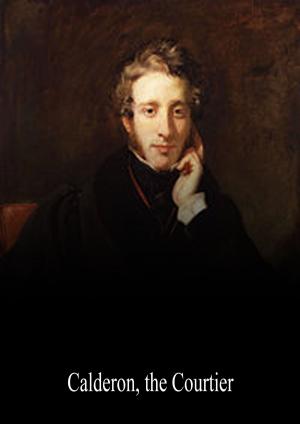| Author: | Reginald R. Sharpe | ISBN: | 1230000105601 |
| Publisher: | Zhingoora Books | Publication: | February 9, 2013 |
| Imprint: | Language: | English |
| Author: | Reginald R. Sharpe |
| ISBN: | 1230000105601 |
| Publisher: | Zhingoora Books |
| Publication: | February 9, 2013 |
| Imprint: | |
| Language: | English |
PREFACE.
Of the numerous works that have been written on London, by which I mean more especially the City of London, few have been devoted to an adequate, if indeed any, consideration of its political importance in the history of the Kingdom. The history of the City is so many-sided that writers have to be content with the study of some particular phase or some special epoch. Thus we have those who have concentrated their efforts to evolving out of the remote past the municipal organization of the City. Their task has been to unfold the origin and institution of the Mayoralty and Shrievalty of London, the division of the City into wards with Aldermen at their head, the development of the various trade and craft guilds, and the respective powers and duties of the Courts of Aldermen and Common Council, and of the Livery of London assembled in their Common Hall. Others have devoted themselves to the study of the ecclesiastical and monastic side of the City's history—its Cathedral, its religious houses, and hundred and more parish churches, which occupied so large an extent of the City's area. The ecclesiastical importance of the City, however, is too often ignored. "We are prone," writes Bishop Stubbs, "in examining into the municipal and mercantile history of London, to forget that it was a very great ecclesiastical centre." Others, again, have confined themselves to depicting the every-day life of the City burgess, his social condition, his commercial pursuits, his amusements; whilst others have been content to perpetuate the memory of streets and houses long since lost to the eye, and thus to keep alive an interest in scenes and places which otherwise would be forgotten.
The political aspect of the City's history has rarely been touched by writers, and yet its geographical position combined with the innate courage and enterprise of its citizens served to give it no small political power and no insignificant place in the history of the Kingdom. This being the case, the Corporation resolved to fill the void, and in view of the year 1889 being the 700th Anniversary of the Mayoralty of London—according to popular tradition—instructed the Library Committee to prepare a work showing "the pre-eminent position occupied by the City of London and the important function it exercised in the shaping and making of England."
It is in accordance with these instructions that this and succeeding volumes have been compiled. As the title of the work has been taken from a chapter in Mr. Loftie's book on London ("Historic Towns" series, chap. ix), so its main features are delineated in that chapter. "It would be interesting"—writes Mr. Loftie—"to go over all the recorded instances in which the City of London interfered directly in the affairs of the Kingdom. Such a survey would be the history of England as seen from the windows of the Guildhall." No words could better describe the character of the work now submitted to the public. It has been compiled mainly from the City's own archives. The City has been allowed to tell its own story. If, therefore, its pages should appear to be too much taken up with accounts of loans advanced by the City to impecunious monarchs or with wearisome repetition of calls for troops to be raised in the City for foreign service, it is because the City's records of the day are chiefly if not wholly concerned with these matters. If, on the other hand, an event which may be rightly deemed of national importance be here omitted, it is because the citizens were little affected thereby, and the City's records are almost, if not altogether, silent on the subject.
The work does not affect to be a critical history so much as a chronique pour servir, to which the historical student may have recourse in order to learn what was the attitude taken up by the citizens of London at important crises in the nation's history. He will there see how, in the contest between Stephen and the Empress Matilda, the City of London held as it were the balance; how it helped to overthrow the tyranny of Longchamp, and to wrest from the reluctant John the Great Charter of our liberties; how it was with men and money supplied by the City that Edward III and Henry V were enabled to conquer France, and how in after years the London trained bands raised the siege of Gloucester and turned the tide of the Civil War in favour of Parliament. He will not fail to note the significant fact that before Monk put into execution his plan for restoring Charles II to the Crown, the taciturn general—little given to opening his mind to anyone—deemed it advisable to take up his abode in the City in order to first test the feelings of the inhabitants as to whether the Restoration would be acceptable to them or not. He will see that the citizens of London have at times been bold of speech even in the presence of their sovereign when the cause of justice and the liberty of the subject were at stake, and that they did not hesitate to suffer for their opinions; that, "at many of the most critical periods of our history, the influence of London and its Lord Mayors has turned the scale in favour of those liberties of which we are so justly proud"; and that had the entreaties of the City been listened to by the King and his ministers, the American Colonies would never have been lost to England.
There are two Appendices to the work; one comprising copies from the City's Records of letters, early proclamations and documents of special interest to which reference is made in the text; the other consisting of a more complete list of the City's representatives in Parliament from the earliest times than has yet been printed, supplemented as it has been by returns to writs recorded in the City's archives and (apparently) no where else. The returns for the City in the Blue Books published in 1878 and 1879 are very imperfect.
R. R. S.
The Guildhall, London,
April, 1894.
PREFACE.
Of the numerous works that have been written on London, by which I mean more especially the City of London, few have been devoted to an adequate, if indeed any, consideration of its political importance in the history of the Kingdom. The history of the City is so many-sided that writers have to be content with the study of some particular phase or some special epoch. Thus we have those who have concentrated their efforts to evolving out of the remote past the municipal organization of the City. Their task has been to unfold the origin and institution of the Mayoralty and Shrievalty of London, the division of the City into wards with Aldermen at their head, the development of the various trade and craft guilds, and the respective powers and duties of the Courts of Aldermen and Common Council, and of the Livery of London assembled in their Common Hall. Others have devoted themselves to the study of the ecclesiastical and monastic side of the City's history—its Cathedral, its religious houses, and hundred and more parish churches, which occupied so large an extent of the City's area. The ecclesiastical importance of the City, however, is too often ignored. "We are prone," writes Bishop Stubbs, "in examining into the municipal and mercantile history of London, to forget that it was a very great ecclesiastical centre." Others, again, have confined themselves to depicting the every-day life of the City burgess, his social condition, his commercial pursuits, his amusements; whilst others have been content to perpetuate the memory of streets and houses long since lost to the eye, and thus to keep alive an interest in scenes and places which otherwise would be forgotten.
The political aspect of the City's history has rarely been touched by writers, and yet its geographical position combined with the innate courage and enterprise of its citizens served to give it no small political power and no insignificant place in the history of the Kingdom. This being the case, the Corporation resolved to fill the void, and in view of the year 1889 being the 700th Anniversary of the Mayoralty of London—according to popular tradition—instructed the Library Committee to prepare a work showing "the pre-eminent position occupied by the City of London and the important function it exercised in the shaping and making of England."
It is in accordance with these instructions that this and succeeding volumes have been compiled. As the title of the work has been taken from a chapter in Mr. Loftie's book on London ("Historic Towns" series, chap. ix), so its main features are delineated in that chapter. "It would be interesting"—writes Mr. Loftie—"to go over all the recorded instances in which the City of London interfered directly in the affairs of the Kingdom. Such a survey would be the history of England as seen from the windows of the Guildhall." No words could better describe the character of the work now submitted to the public. It has been compiled mainly from the City's own archives. The City has been allowed to tell its own story. If, therefore, its pages should appear to be too much taken up with accounts of loans advanced by the City to impecunious monarchs or with wearisome repetition of calls for troops to be raised in the City for foreign service, it is because the City's records of the day are chiefly if not wholly concerned with these matters. If, on the other hand, an event which may be rightly deemed of national importance be here omitted, it is because the citizens were little affected thereby, and the City's records are almost, if not altogether, silent on the subject.
The work does not affect to be a critical history so much as a chronique pour servir, to which the historical student may have recourse in order to learn what was the attitude taken up by the citizens of London at important crises in the nation's history. He will there see how, in the contest between Stephen and the Empress Matilda, the City of London held as it were the balance; how it helped to overthrow the tyranny of Longchamp, and to wrest from the reluctant John the Great Charter of our liberties; how it was with men and money supplied by the City that Edward III and Henry V were enabled to conquer France, and how in after years the London trained bands raised the siege of Gloucester and turned the tide of the Civil War in favour of Parliament. He will not fail to note the significant fact that before Monk put into execution his plan for restoring Charles II to the Crown, the taciturn general—little given to opening his mind to anyone—deemed it advisable to take up his abode in the City in order to first test the feelings of the inhabitants as to whether the Restoration would be acceptable to them or not. He will see that the citizens of London have at times been bold of speech even in the presence of their sovereign when the cause of justice and the liberty of the subject were at stake, and that they did not hesitate to suffer for their opinions; that, "at many of the most critical periods of our history, the influence of London and its Lord Mayors has turned the scale in favour of those liberties of which we are so justly proud"; and that had the entreaties of the City been listened to by the King and his ministers, the American Colonies would never have been lost to England.
There are two Appendices to the work; one comprising copies from the City's Records of letters, early proclamations and documents of special interest to which reference is made in the text; the other consisting of a more complete list of the City's representatives in Parliament from the earliest times than has yet been printed, supplemented as it has been by returns to writs recorded in the City's archives and (apparently) no where else. The returns for the City in the Blue Books published in 1878 and 1879 are very imperfect.
R. R. S.
The Guildhall, London,
April, 1894.















